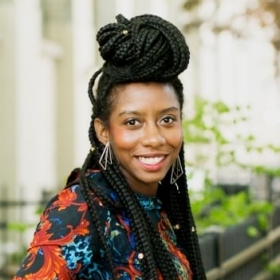Date & time
12:30 p.m. – 1:30 p.m.
Registration is closed
Registration is closed
Hadiya Roderique and Kimberly Manning
This event is free.
University Advancement
Online
Workplaces are built around everyday interactions with co-workers, but for people of colour, there can be a constant presence of microaggressions and other signals that relay the message that you don’t belong.
Allies play an important role in the continued fight for equity in the workplace and knowing where you stand, makes a huge difference in your impact. Do you look for ways to support your other colleagues? Do you manage a team with diverse experiences, backgrounds, and needs?
Hadiya Roderique will provide strategies for organizations and colleagues to become better allies to those who face challenges in the workplace in a conversation moderated by Kimberly Manning, Principal of Concordia’s Simone de Beauvoir Institute.

As a researcher, lawyer, journalist and woman of colour, Hadiya Roderique is uniquely positioned to discuss issues related to diversity, inclusion and equity in the workplace.
Since the publication of her Globe and Mail article, “Black on Bay Street,” she become a sought-out speaker on these issues, focusing on the challenges faced by diverse groups, the benefits of diverse teams and how to improve diversity and inclusion in the workplace.
Her past clients include Purolator, Engineers Without Borders, the Department of Justice, Civic Action/Emerging Leaders Network, Osgoode Hall Law School, Thomson Reuters and Hire Immigrants Ottawa.

Kimberley Manning specializes in Chinese politics, women and politics, and the rights of transgender children and youth.
In her academic work, Kimberley analyzes political life through the lens of feminist theory, with particular attention to the affective enactment of family ties in social movements and state formation.
In her work as a university leader and community organizer, Kimberley has co-founded a non-profit organization, advocated for the passage of human rights legislation in Quebec City and Ottawa, overseen a three-year student-directed program to improve equity and diversity at Concordia through social action research projects and built two large grassroots campaigns to run for political office.
© Concordia University